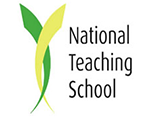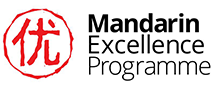Classical Civilisation
Why choose to study Classical Civilisation / Classics at Advanced Level?
The first—and most important—reason is because it’s a fascinating subject, with a huge breadth of subject matter whose influence is very much still felt today. You will study the first pieces of Western Literature filled with Gods, Goddesses, Heroes and Monsters. You will consider the very beginnings of our civilisation. You will read gruesome tales of suicide, infanticide and mass murder. You will learn about the very earliest political system that still influences political systems today, you will learn about the place of oratory in political life. This is a subject that combines many other subjects. By studying an entire civilisation rather than focusing just on literature or history, you will get a great insight into how literature, religion, history, politics, art, architecture and philosophy inform each other. This will give you a richer appreciation of each.
It is also a very useful subject. Like History, Classical Civilisation / Classics offers an important insight into where we come from and why modern society is the way it is. Like RS, Classical Civilisation / Classics raises vital questions about matters that we take for granted by comparison to very different societies. Like English, it develops one’s appreciation of literature and one’s use of the language. As an essay subject, Classical Civilisation / Classics trains students to collect a diverse range of information and to synthesise this information into clear, concise arguments. In learning about the ancients, you will develop more familiarity with many of the references to the Classical world which abound in English (and European) literature.
"Our lives are infinitely richer if we take a little time to look at what the Greeks and Romans have given us: each time we discuss politics or law, religion or philosophy, art or culture, we’re continuing a conversation which began millennia ago. So why not go back to the beginning?"
NATALIE HAYNES – author of The Ancient Guide to Modern Life
A Level Classics at Fortismere
The A Level will be called “Classical Civilisation” and the exam board is OCR.
|
Content overview |
Assessment overview |
|
|---|---|---|
|
Compulsory component - The world of the hero A study of Homer’s Odyssey and Virgil’s Aeneid Prescribed books of the Odyssey 1, 5, 6, 7, 8, 9, 10, 11, 12, 13, 16, 17, 18, 19, 21, 22, 23 Prescribed books of the Aeneid 1, 2, 4, 6, 7, 8, 9, 10, 11, 12 |
100 marks 2 hour and 20 minute paper |
40% of the total A Level
Odyssey will be studied in the first year and Aeneid in the second year |
|
Component 2 - Culture and the arts Imperial Image (Rome) Image is one which is very familiar in our contemporary media; and so this exploration of a Roman politician and his successful propaganda campaign is very relevant. Augustus was, through careful management of public opinion, able to convince a society that was fundamentally anti-monarchical to turn away from its republican values and to accept one-man rule. |
75 marks
1 hour and 45 minute paper |
30% of the total A Level
This will be studied in the first year of the A Level |
|
Component 3 - Beliefs and ideas Athenian Democracy The aim of this component is to examine the concept of Democracy; The concepts of ‘popular’ leaders who mislead the people, or give them what they want rather than what they need, and a voting public who may not be fully informed on the issues, may resonate with today’s learners and make this study of one of the West’s foundational political ideas engaging and relevant. |
75 marks
1 hour and 45 minute paper |
30% of the total A Level
This will be studied in the second year of the A Level |
Contact the Classics Department: saldridge@fortismere.org.uk



